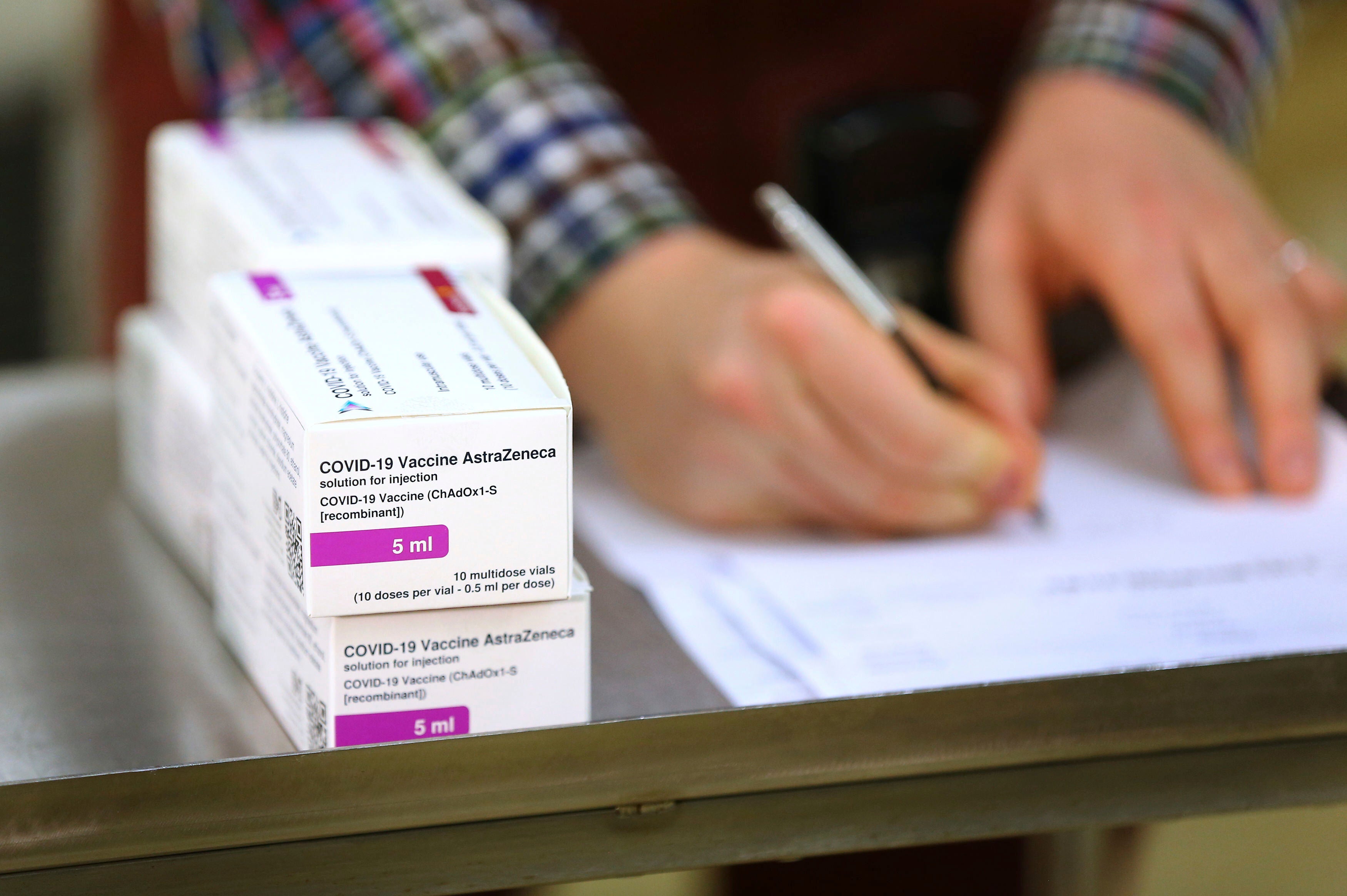UK to ramp up inoculations with Oxford-AstraZeneca vaccine
Britain is taking another giant step in the fight against COVID-19, ramping up its immunization program by giving shots from the vaccine created by Oxford University and pharmaceutical giant AstraZeneca

Your support helps us to tell the story
From reproductive rights to climate change to Big Tech, The Independent is on the ground when the story is developing. Whether it's investigating the financials of Elon Musk's pro-Trump PAC or producing our latest documentary, 'The A Word', which shines a light on the American women fighting for reproductive rights, we know how important it is to parse out the facts from the messaging.
At such a critical moment in US history, we need reporters on the ground. Your donation allows us to keep sending journalists to speak to both sides of the story.
The Independent is trusted by Americans across the entire political spectrum. And unlike many other quality news outlets, we choose not to lock Americans out of our reporting and analysis with paywalls. We believe quality journalism should be available to everyone, paid for by those who can afford it.
Your support makes all the difference.Britain on Monday was taking another giant step in the fight against COVID-19, ramping up its immunization program by giving shots from the vaccine created by Oxford University and pharmaceutical giant AstraZeneca
Since Dec. 8, Britain's National Health Service has been giving out shots from a vaccine made by Pfizer and the German firm BioNTech to health care workers and nursing home residents and staff. On Monday, it boosts that arsenal with inoculations with the Oxford-AstraZeneca vaccine, which is cheaper and easier to use, since it does not require the super-cold storage needed by the Pfizer vaccine.
Officials say the U.K. has around 530,000 doses of the Oxford-AstraZeneca vaccine on hand and is moving toward a goal of vaccinating 2 million people a week as soon as possible.
The Oxford-AstraZeneca vaccine will be administered at a small number of hospitals for the first few days so authorities can watch out for any adverse reactions. But hundreds of new vaccination sites — at both hospitals as well as local doctors’ offices — will launch this week, joining the more than 700 already in operation, NHS England said.
In a shift from practices in the U.S. and elsewhere, Britain plans to give people second doses of both vaccines within 12 weeks of the first shot rather than within 21 days, to accelerate immunizations across as many people as quickly as possible.
The government’s deputy chief medical officer, Professor Jonathan Van-Tam, said Sunday that decision is “the right thing to do for the nation as a whole.”
The U.K. is in the midst of an acute outbreak, recording more than 50,000 new coronavirus infections a day over the past six days. On Sunday, it notched up another 54,990 cases and 454 virus-related deaths to take its confirmed pandemic death toll total to 75,024.
British Prime Minister Boris Johnson has warned that more onerous lockdown restrictions in England are likely in the coming weeks as the country reels from a coronavirus variant that has pushed infection rates to their highest recorded levels.
Johnson, though, insisted Sunday he has “no doubt” that schools are safe and urged parents to send their children back into the classroom in areas of England where they can. Unions representing teachers have called for schools to turn to remote learning for at least a couple of weeks more due to the variant, which officials have said is up to 70% more contagious.
“We are entirely reconciled to do what it takes to get the virus under control, that may involve tougher measures in the weeks ahead," Johnson told the BBC
Johnson conceded that school closures, curfews and the total banning of household mixing could be on the agenda for areas under the most stress.
London and southeast England are facing extremely high levels of new infections and there's speculation that restrictions there will have to be tightened. Some areas in the region have more than 1,000 coronavirus cases per 100,000 people.
Johnson's Conservative government is using a tiered coronavirus restrictions system to try to stop the spread of the virus. Most of England is already at the highest Tier 4 level, which involves closing non-essential shops, gyms and recreation centers and going to at-home instruction.
___
Follow AP coverage of the coronavirus pandemic at:
https://apnews.com/hub/coronavirus-pandemic
https://apnews.com/hub/coronavirus-vaccine
https://apnews.com/UnderstandingtheOutbreak